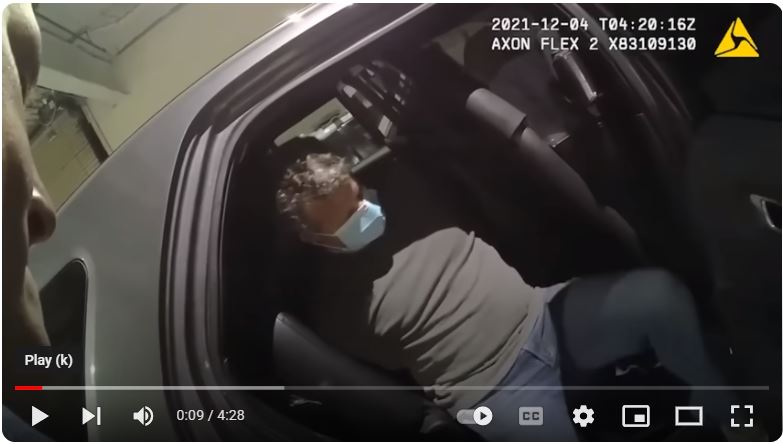Involuntary Manslaughter Charges and Penalties in Michigan
Here’s things you should to know
What is Involuntary Manslaughter in Michigan?
Involuntary manslaughter differs from murder in that it lacks intent to kill.
In Michigan, it is somewhat defined as the killing of another person through:
- Recklessness: This involves acting with a conscious disregard for a substantial and unjustifiable risk that the act will cause death or serious physical harm.
- Gross negligence: This refers to a failure to use even the slightest care that a reasonable person would use in similar circumstances.
- Commission of a misdemeanor: This means unintentionally causing death while committing another crime, even a minor one.
Involuntary manslaughter distinguishes itself from voluntary manslaughter based on the intent of the alleged offender.
The broad differentiating factor lies in whether the accused intended to cause severe physical harm to the victim, as seen in cases of voluntary manslaughter.
Conversely, in cases of involuntary manslaughter, the accused is alleged to have caused the victim’s death without malice or intent.
A conviction of voluntary manslaughter can arise when the accused did not have the intention to cause serious bodily harm to the victim but exhibited a significant lack of care in their behavior towards the victim’s safety.
The determining factor between these two homicide offenses is typically the presence of intent.
What are the penalties?
- Up to 15 years in prison: The exact sentence depends on the specific circumstances of the case, including the severity of the recklessness or negligence and the presence of aggravating factors.
- Fine of up to $7,500: This financial penalty adds to the significant burden faced by those convicted.
Charged with Homicide, Second Degree Murder, Manslaughter?
Call our office to see if we can help
Komorn Law 248-357-2550
Additional Consequences:
Beyond the legal penalties, a conviction for involuntary manslaughter can have lasting consequences, including:
- Loss of employment or professional licenses: Many professions have strict ethical codes that may prohibit employing individuals with criminal records.
- Difficulty obtaining housing or loans: Background checks often reveal criminal convictions, making it harder to secure housing or loans.
- Social stigma: The emotional and social impact of a conviction can be significant, leading to isolation and judgment.

Related Articles
Michigan Workers Right to Protest – Can They Force a Change in Business Strategy?
Michigan Workers and the Right to Protest: Can They Force a Change in Business Strategy?The ever-evolving economic landscape can create friction between Michigan workers and their employers. Workers may find themselves at odds with company strategies or investments,...
Can I be arrested for DUI riding my bike high in Michigan?
Recreational Cannabis is "legal" in Michigan.Can I be arrested for riding my bike high in Michigan?First... What is the definition of a bicycle? MCL 257.4 defines a “bicycle” as: “…a device propelled by human power upon which a person may ride, having either 2 or 3...
Traffic FAQs – Traffic Crashes & Reports
Traffic FAQs - Traffic Crashes & Reports Know the laws if you get pulled over. Know who to call if you need legal defense if a violation turns into a DUI or worse. That would be us. Traffic Crashes & Reports Beginning in July 2005, the State of Michigan...
Berkley state representative introduces bill to police noise from cars
A Michigan bill aims to crack down on excessive noise from vehicles with intentional modifications. The Problem: Loud vehicles are a nuisance for residents, especially along Woodward Avenue, a popular cruising destination. The current law is unclear and difficult to...
More Posts

Legal Consequences of Rescheduling Marijuana – 2024
Legal Consequences of Rescheduling Marijuana Jan 2024 a report from the Congressional Research Service.

Scientists Discover The Reason Cannabis Causes The Munchies
For the first time, scientists have uncovered the precise neurological impacts of cannabis use that give rise to the phenomenon famously referred to as the "munchies," as revealed by an innovative study backed by federal funds. Researchers at Washington State...

Maker of CBD products asks court to decide
The Petitions of the Week column highlights a selection of cert petitions recently filed in the Supreme Court. A list of all petitions we’re watching is available here. Organized crime, from the mafia to small-time money laundering schemes, often evades criminal...

Transcription of the 1789 Joint Resolution of Congress Proposing 12 Amendments to the U.S. Constitution
This information was taken from archives.gov. One should assume it is factual... but assuming information is a fact is a perilous assumption. Here is what you paid for... Transcription of the 1789 Joint Resolution of Congress Proposing 12 Amendments to the U.S....

New laws for 2024 – Buckle Up
States nationwide will welcome the upcoming year with the implementation of laws tackling crucial matters such as gun violence, book bans, and the introduction of gender-neutral toy sections. These legislative advancements are set to take effect throughout 2024,...

Biden Issues More Cannabis Pardons but…
Joe Biden has extended pardons for individuals charged with simple cannabis possession and use, yet disappointingly, he has refrained from granting clemency to those currently incarcerated for cannabis-related offenses.In an extension of the previous year's extensive...

Working With and Not Against, IRS Revenue Code 280E
Cannabis operators face IRS Revenue Code 280E restrictions, but smart tax planning and strategies allow entrepreneurs to mitigate its impact on their business.Komorn Law is Michigan's top cannabis law firms when it comes to licensing, consulting and legal defense....

Department of Attorney General Prepares for MLEAC Accreditation
LANSING – The Michigan Department of Attorney General (DAG) recently welcomed a team of assessors from the Michigan Law Enforcement Accreditation Commission (MLEAC). The assessors came to examine all aspects of the Department’s compliance with the MLEAC standards in...

Oklahoma’s wild marijuana market is about to shrivel
The world's weed market, once booming with nearly 14,000 licensed medical marijuana businesses at its peak, has experienced a steady decline since Oklahoma voters overwhelmingly rejected a recreational legalization referendum in March. Heightened enforcement by state...

400K settlement after being arrested for a DUI, even though he passed breath and blood tests
A Colorado man is poised to receive a $400,000 settlement from city authorities after being wrongfully arrested for a DUI, even though he had passed both a breath and blood test.According to the complaint, Elias was driving southbound on College Avenue in Fort Collins...











